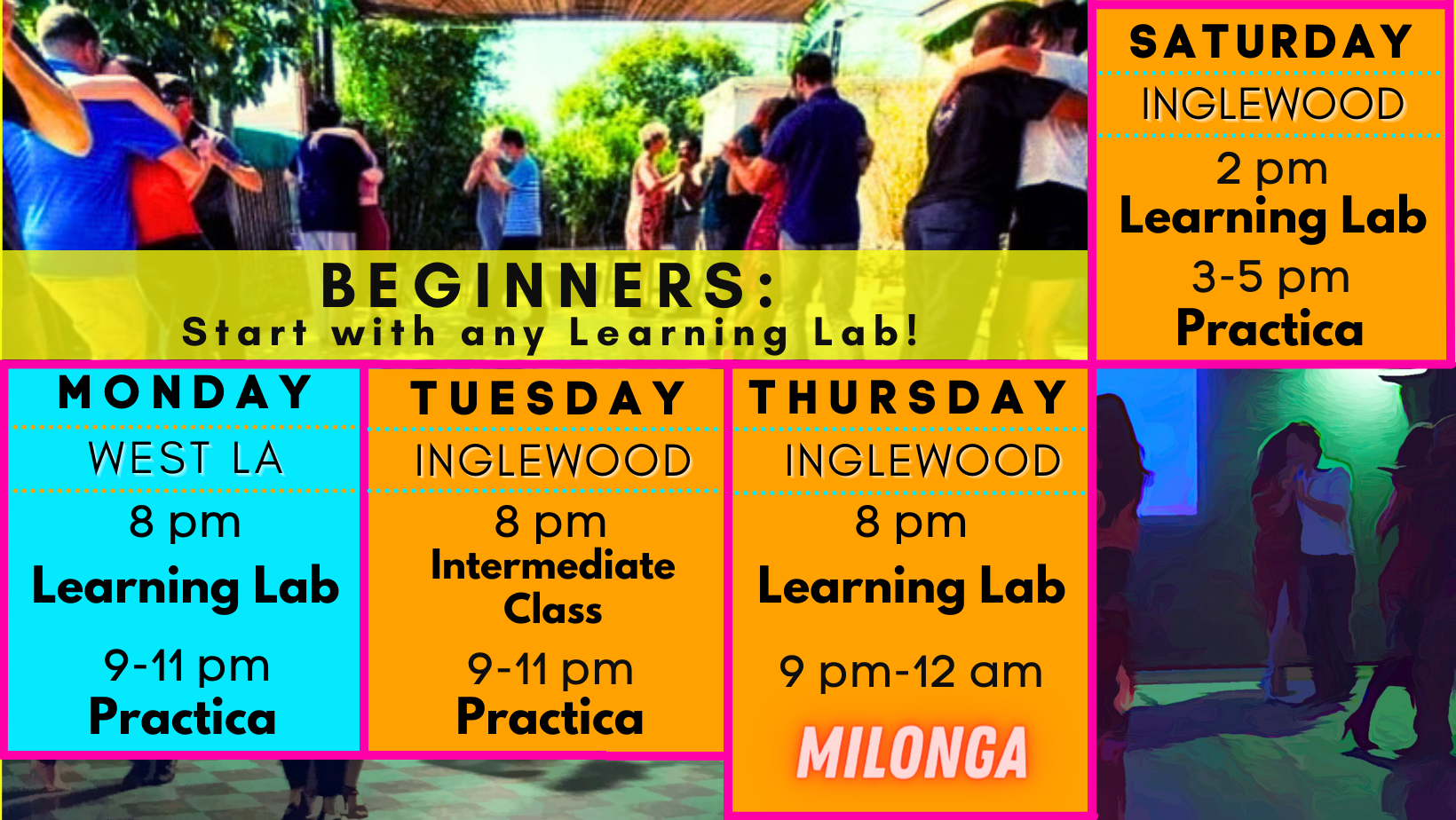Mistakes, the Mind and the Milonga - An Interview with Leonel Hung-Yut Chen
/by Mitra Martin

Seven years ago, Hung-Yut (Leonel) left his Tango community in San Francisco to join Hwayi (Florencia), who he had met at a milonga in Seoul. Together, they have established a very special Tango school in Seoul, a city that has an exceptionally high level of dancing.
I interviewed Hung-Yut as a way to introduce him to the LA community, where we have invited him and Hwayi to teach their first weekend workshop program in North America. Read this thoughts on learning and teaching, campeonato, mistakes, and the milonga.
Mitra: Hung-Yut, you and Hwayi both mention Javier Rodriguez among your primary influences. So many tango dancers here in LA - me and Stefan included - are so inspired by his dancing! Can you tell us about how he has shaped your approach to tango and the way you dance?
Hung-Yut: He taught us that the dance starts with the culture of tango, and it is a culture of Argentina and Buenos Aires. How we say hello in the milonga, how we carry ourselves, how we dress, how to invite/accept/reject dances, our attitude when we dance, etc. are all fundamental -- as fundamental as walking or embrace or any technique.
I have not come across many teachers who teach this. For Argentinians they never formally learned how to be Argentine (they just are) so it's hard for them to teach. Also, teaching culture is difficult; it's hard to break it down and explain, and it's hard to get people to change who they are.
M: You know Cantonese, Mandarin, Spanish, English, and Korean. Do you see any parallels between learning new languages and learning tango?
H-Y: There is definitely similarity between learning tango and learning languages. In both cases the students learn faster if they are not afraid to try and make mistakes. Those who make many mistakes are the ones who learn well.
M: You and Hwayi have both have been engaged with Tango competitions. You won the 2002 USA Tango Championship here in LA! And Hwayi has won second prize in the the World Tango Championship in Buenos Aires in 2004, and even been a judge at the Asian Tango Championships in 2009 and 2010. What were these experiences like for you? What role do you think championships and competitions have in the world of this social dance? How is this changing?
H-Y: Championships and competitions is effective in promoting the dance. It also gives some people motivation to practice and improve. But it is not healthy to take the results of the competition too seriously. On some days you win, on some days you don't. Tango is lived in the milonga, with or without championship and competition.
M: Tango is notoriously difficult to teach. What is your teaching philosophy? What kind of experience do you intend to create when you teach? Who has influenced your growth as teachers?
H-Y: It's important to teach and learn slowly. There is no need to hurry. Some people seem to be talented and can pick it up relatively quickly, but they lack motivation and soon drop out. Some people find it very challenging in the beginning, but they don't give up and eventually they can dance in the milonga. It's all about perseverance.
When we teach we pay attention to the student's mind as well as the body. If you can put the student in the right mindset, the body movement will follow.
 Hung-Yut (Leonel) and Hwayi (Florencia) have established a beloved and influential Tango school in Seoul, Korea. Excellent social dancers credit them with being an important engine of the transformation of the Tango social dance scene in Seoul. They will be in LA November 12-17th. For more info on their visit, workshop content and schedule please visit the event page.
Hung-Yut (Leonel) and Hwayi (Florencia) have established a beloved and influential Tango school in Seoul, Korea. Excellent social dancers credit them with being an important engine of the transformation of the Tango social dance scene in Seoul. They will be in LA November 12-17th. For more info on their visit, workshop content and schedule please visit the event page.


